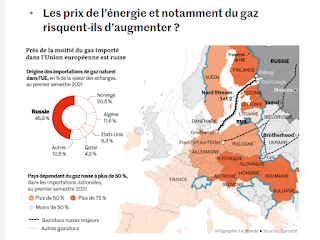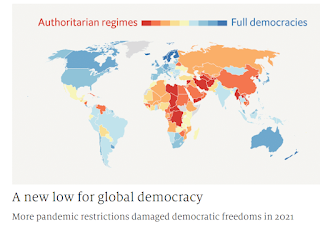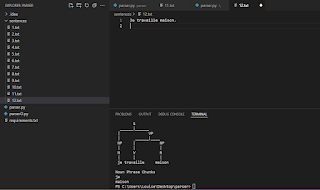https://www.lemonde.fr/international/article/2022/02/26/ukraine-la-france-est-elle-menacee-peut-on-parler-de-troisieme-guerre-mondiale-les-reponses-a-vos-questions-les-plus-frequentes_6115374_3210.html
source: Le Monde, February 26, 2022.
translation: GoogleTranslate/doxa-louise
Ukraine: is France threatened? Is this World War III? Answers to your most frequently asked questions
Russia launched a military attack against Ukraine on Thursday, triggering the largest armed conflict on the European continent since the end of World War II.
Thursday, February 24 at dawn, Russian President Vladimir Putin decided to attack Ukraine with a "special military operation" with the aim of "demilitarizing and denazifying" the country. Three days later, Russian forces launched the offensive against the capital, Kiev. How far will the Russian army go? Is France directly threatened? Will the conflict lead to an energy crisis? Find the answers to your most frequently asked questions.
After Ukraine, could Russia go after another country?
For now, the Russian president is focusing on Ukraine. He has already almost absorbed Belarus: he has used Belarusian territory as a base to attack Ukraine from the north. He can then decide that other regions or countries, formerly included in the USSR, must pass under Russian control. That's what he's trying to do with Ukraine. The extent of his ambitions will depend in part on the resistance he encounters and the attitude of Western countries.
Romania, a member of the North Atlantic Treaty Organization (NATO) since 2004, is one of the borders that separates the Atlantic Alliance from Ukraine and its inhabitants are particularly worried because of Transnistria , a enclave to the east of neighboring Little Moldova. A "no man's land", which Russia appropriated manu militari in 1992 and which has since been classified in the unenviable category of "frozen" conflicts .
On the first day of the Russian attack , Thursday, Moldova once again felt the weight of the Russian army stationed in Transnistria. The Moldovan and Romanian media circulated images of two missiles launched from this enclave towards Ukraine. An attack that the Moldovan Ministry of Defense, playing the appeasement card, did not confirm. Unlike Romania, Moldova is not a member of NATO, which is therefore not required to intervene in the event of Russian aggression.
Will NATO go to war? Should we fear a third world war?
A priori, the NATO countries are not going to declare war because Ukraine is not a member of NATO and therefore NATO is not required to go to war to defend it. The United States and most of the European countries members of NATO have made it known for several weeks that they do not intend to send soldiers to Ukraine.
However, NATO has started to deploy elements of its reaction force for the first time to further strengthen its defense posture and be able to react quickly to any eventuality. “The answer is a strengthening of the deterrence posture and the defense of allies. The alliance activated its defense plans on Thursday and is deploying elements of its reaction force ,” NATO Secretary General Jens Stoltenberg announced on Friday.
This force has 40,000 soldiers and its spearhead is a joint operational force at a very high level of readiness of 8,000 combatants currently commanded by France. It includes a multinational brigade and battalions supported by air and maritime units and special forces.
Is France directly threatened?
France is not attacked directly and is not bound by a defense treaty to Ukraine: the deployment of French soldiers in Ukraine is therefore not an option. Mr. Macron, however, announced in Brussels on Friday that France would accelerate the deployment of soldiers in Romania within the framework of NATO. Furthermore, "we are ready to continue to deliver military and support equipment to the population, as I was able to tell [Ukrainian President Volodymyr] Zelensky ," added the head of state.
In Estonia, France participates, with some 300 soldiers mobilized for a year, in the permanent mission of "Enhanced Forward Presence", which was deployed after the annexation of Crimea by Russia, in 2014. "France will continue to fully play its role of reassuring NATO allies, by sending a new contingent to Estonia within the enhanced forward presence ," Macron also announced on Friday.
Which countries support Russia?
Russia has significantly less international support than Ukraine. From the first day of the attack, the United States, NATO, the European Union, Germany, France, the United Kingdom, Italy, Japan, Finland, Sweden, but also Turkey and Israel, among other nations, condemned the attack.
On the other hand, without much surprise, Syrian President Bashar Al-Assad welcomed Russia's invasion of Ukraine during a telephone interview with Vladimir Putin on Friday. “President Al-Assad said that what is happening today is a correction of history and a restoration of the balance of the international order after the fall of the Soviet Union,” the Syrian Presidency reported. in a press release.
The Chinese President, Xi Jinping, meanwhile, held an intermediate position the same day during a meeting with his Russian counterpart. China “supports Russia in resolving [the conflict] through negotiations with Ukraine ,” state broadcaster CCTV reported in an account of the telephone exchange.
Without using the term war or invasion, Xi Jinping spoke of "upheavals in eastern Ukraine" , which "concern the international community" , according to CCTV. The record does not mention a call for a halt to the fighting by Moscow.
What is the UN doing in all this?
As in 2003, with the US invasion of Iraq, the United Nations (UN) again proved powerless to prevent Russia's war in Ukraine . For seventy-seven years, the UN has shown its inability to prevent a war started by one of its five permanent members, endowed with a right of veto, whether it is the United States in Iraq or Russia in Ukraine.
The multilateral institution, whose credibility has been seriously damaged, is one of the few not to have been reformed to take into account the evolution of the world, which has become multipolar. It is most often relegated to the main role of provider of humanitarian aid in the event of natural disasters or conflicts, succeeding at best in certain cases in limiting their expansion.
The UN Charter, which Moscow is accused of violating with the invasion of Ukraine, does not provide for any exclusion of its members if they were to start a war. In the Security Council, the right of veto allows everything, and Russia does not hesitate to use it (more than fifteen times since 2011 for the conflict in Syria alone). Moreover, the draft resolution presented by the United States and Albania, which provided that "the Russian Federation will immediately cease [it] to use force against Ukraine" , was rejected on Friday despite 11 votes for , but 1 vote against (Russia) and three abstentions (China, India and the United Arab Emirates).
Are the prices for energy and in particular of gas likely to increase?
The member countries of the European Union import 40% of their gas needs from Russia , with a strong heterogeneity between the Twenty-Seven. Slovakia and Austria source exclusively from Russia. Conversely, Spain does not buy anything from Moscow. In Hungary and Finland, 80% of the supply is Russian; this percentage drops to 56% in Germany , it is just over 20% in France.
Faced with this major geopolitical crisis, the European powers are faced with an impossible choice: either they reduce imports of Russian hydrocarbons to counter Vladimir Putin and then expose themselves to a major energy shock, or they limit the sanctions and reduce the economic damage. In these first days of conflict, they have so far chosen the second option, which should not lead to an immediate price increase.
Is the invasion of Ukraine supported by the Russian people?
Overall, while the Kremlin is immune to the harshest criticism, it also cannot count on an enthusiasm comparable to that which followed the annexation of Crimea in 2014. At the start of 2021, around 50% of Russians supported recognition or attachment of the separatist territories to Russia, against 25% who advocated their return to Ukrainian rule. On the other hand, only 17% of Russians believed that Russia and Ukraine should form a single state.
On the eve of the attack, it was above all fatigue that dominated the streets of Moscow , fueled by great indifference and popular mistrust for everything that touches the public sphere.
Le Monde
Transnistria(Moldova)
* * *
What is Swift_BBC:
https://www.bbc.com/news/business-60521822









































